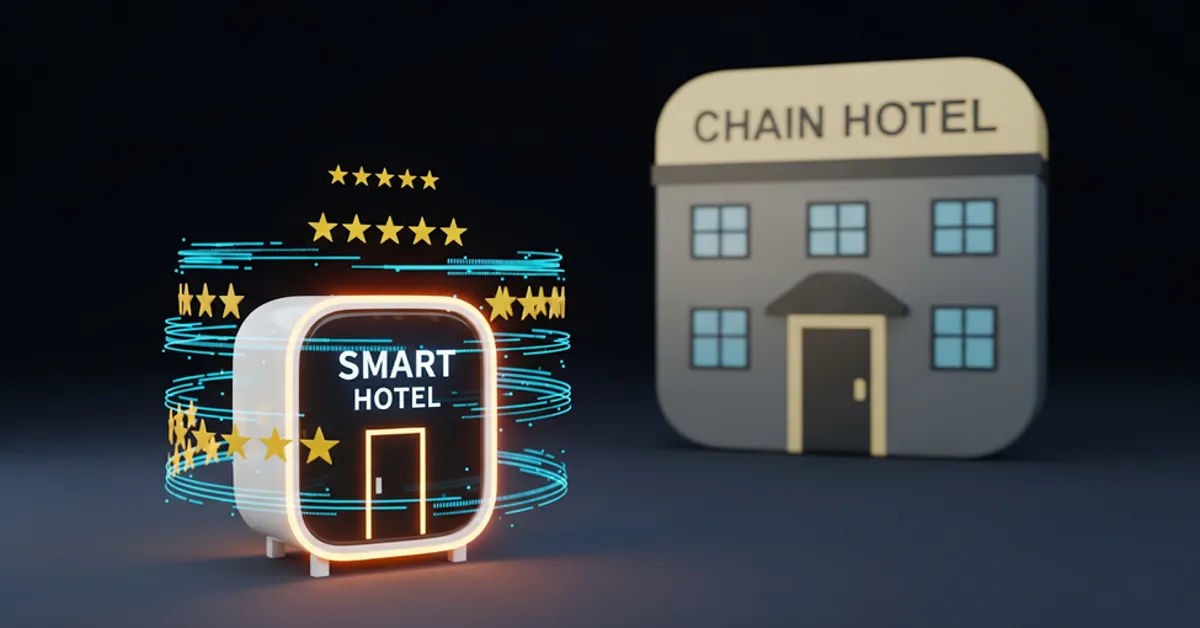In a hospitality industry dominated by major hotel chains, independent hotels are finding new ways to stand out—and hotel reputation management is proving to be one of their strongest assets. Instead of relying on enormous marketing budgets, these savvy operators are building trust online, responding to guest feedback, and creating memorable experiences that travelers want to share with others.
Why Reputation Is a Hotel’s Strongest Currency
Reputation management is the ongoing process of shaping how your hotel is perceived online. In the hospitality industry, where customer experience is paramount, reputation has a direct impact on occupancy, pricing, and repeat business.
Positive guest reviews, responsive communication, and visible community involvement all signal to potential guests that they’re making the right choice. Studies show hotels with strong reputations can charge higher rates and enjoy up to 22% higher revenue than those with average or poor public perception.
What Independent Hotels Are Up Against
Smart hotels often operate without the brand recognition or resources of major chains—but that doesn’t mean they can’t compete.
Unique Challenges
Independent hotels face:
- Lower visibility on booking platforms
- Limited budgets for paid promotion
- Fewer reviews to build credibility
- No loyalty program or corporate brand support
These factors make online perception even more critical. Without strong hotel reputation management, even the best guest experience can go unnoticed.
Why Chains Have the Upper Hand
Large hotel chains benefit from:
- Consistent branding and messaging
- Large volumes of guest reviews
- National marketing campaigns
- Built-in loyalty programs
This unified presence makes them appear more trustworthy at first glance. That’s why independent hotels must overperform where it matters most: authenticity, service, and responsiveness.
Hotel Reputation Management Strategies That Work
1. Responding to Reviews (Even the Bad Ones)
Reviews influence nearly 80% of travel decisions. Responding—both to praise and criticism—shows that the hotel cares and is paying attention.
Smart hotels don’t just defend their reputation; they use feedback as a chance to demonstrate professionalism. A well-handled complaint can turn a skeptic into a loyal guest.
2. Staying Active on Social Media
Social media gives hotels a voice and a direct line to guests. The smartest properties don’t just post promotions—they share stories, answer questions, and feature real guest experiences.
Behind-the-scenes photos, local recommendations, or a quick “thank you” can humanize the brand and build a connection.
3. Collecting Feedback While the Guest Is Still There
Some independent hotels use on-site methods to check guest satisfaction before checkout. Whether it’s a casual conversation or a quick digital form, catching problems early gives the hotel a chance to fix issues in real time—and improve the likelihood of a great review later.
Using Technology to Amplify Reputation
Reputation management isn’t about automation—it’s about insight.
Smart hotels are using tech to:
- Track sentiment trends across review sites
- Monitor brand mentions across the web
- Benchmark performance against local competitors
- Identify repeat complaints before they escalate
Firms like NetReputation and OnlineReputation collaborate with independent hotels to develop customized monitoring and reputation improvement plans that prioritize long-term credibility, rather than focusing solely on short-term fixes.
Creating a Brand Identity That Feels Human
Personalization Matters
Independent hotels often have the advantage of knowing their guests better. Remembering names, preferences, or previous stays goes a long way in creating loyalty and positive word-of-mouth.
That level of personalization doesn’t just improve the stay—it fuels great online feedback.
Tell a Story Guests Can Join
The most successful smart hotels tell stories that guests want to be part of. Maybe it’s the building’s history, the owner’s vision, or its role in the local community. Reputation is about identity, and identity is about the stories we tell.
This emotional resonance can compete directly with the predictability of chain experiences.
Why Reputation Impacts the Bottom Line
Independent hotels that manage their reputations well report:
- Up to 30% increase in direct bookings
- Higher guest retention and referral rates
- More favorable placement in OTA rankings
- The ability to compete on value—not just price
Hotels that ignore reputation risk become invisible. Hotels that embrace it grow faster, attract better guests, and generate more revenue over time.
Final Takeaway: Reputation Is the New Luxury
Smart hotels know reputation isn’t just PR—it’s how people decide whether or not to book. With thoughtful reputation management, independent properties can not only survive in a chain-heavy market—they can thrive.
In a world where authenticity beats advertising, reputation is no longer a side task. It’s the primary strategy.

